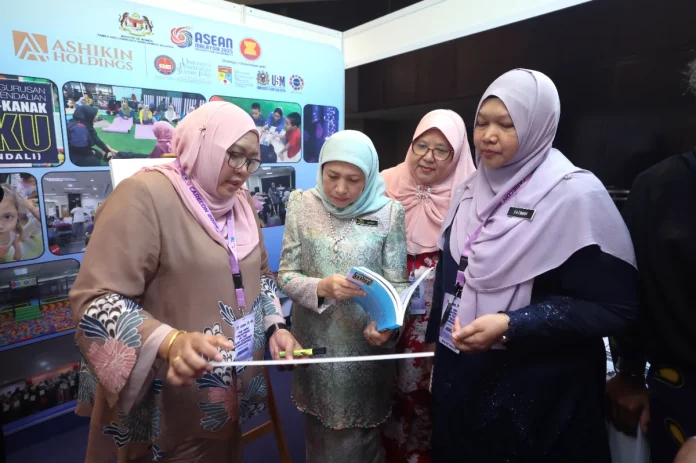Minister says sector could be second largest after manufacturing but remains overlooked, calls for urgent recognition of its role in national growth
KUALA LUMPUR: The value of unpaid care and domestic work in Malaysia could hit a staggering US$90.4 billion (RM425 billion) – making it the country’s second largest economic contributor after manufacturing – yet it continues to be overlooked, said Women, Family and Community Development Minister Datuk Seri Nancy Shukri, citing a study by the Institute of Strategic and International Studies Malaysia.
Speaking at the New Frontiers in the Care Economy Conference (Carecon) and the launch of the Malaysia Care Strategic Framework and Action Plan 2026–2030, she said caregiving should no longer be seen as a personal or family duty, but as a shared social and economic responsibility that sustains families, communities and the nation.
“This is a wake-up call – care work is not charity – it is the backbone of our economy. Yet, it remains invisible and undervalued. We must reframe care as shared work, where both women and men are recognised and empowered.”
Nancy said the framework and action plan are built on five key pillars – strong governance, career pathways, advocacy, strategic collaboration and the promotion of research, data and technology.
“Without this framework, it would be tough for us to move forward in a structured and effective way, as it serves as our guide to developing and implementing programmes for caregivers.”
She added that the first pillar, strong governance, involves reviewing and strengthening existing laws while introducing new ones with proper regulations and infrastructure.
“This is why a whole-of-government approach has been adopted, ensuring that the effort is not led solely by the ministry but also involves other ministries, NGOs and the wider community, whose perspectives and input are crucial.”
Nancy emphasised the need for experts and professionals in the field to strengthen the caregiving system, adding that caregivers should not be left without proper support, recognition or protection.
She said those who aspire to join the profession should feel confident that the system is structured and reliable and offers a recognised, respected and sustainable career path.
“We believe caregiving is not limited to the elderly. It also includes children and anyone in need of care.
“As Malaysia advances towards becoming a more mature nation, the need for a well-structured care system will only continue to grow.”
While implementation is still in its early stages, Nancy said it is important to begin before expanding participation, noting that efforts began last year and that this year the ministry has started training its own caregivers to enhance their skills.
“Under the 13th Malaysia Plan, RM50,000 has been allocated for the next five years to support training and development in this sector.”
Recognising cases where parents leave their children at hospitals and caregivers continue to care for them, Nancy said this is precisely why the programme was introduced, describing it as a responsibility entrusted to the ministry to help those in need, especially individuals with no one else to care for them.
She said many working adults are unable to care for their ailing parents, highlighting the need for accessible and well-equipped care facilities.
“Malaysia does not yet have a comprehensive national care system. The current options are mostly private, but we cannot always be sure whether private caregivers have been properly trained or equipped with the necessary skills.
“Even though we already have institutions under the Social Welfare Department, the focus is mostly on individuals with disabilities or those who have been abandoned. The goal is to expand to cover more people.”
Nancy added that the framework aims to set an example for other countries, noting that caregiving is a shared global challenge and that Malaysia has received strong support from international partners to take the lead.










